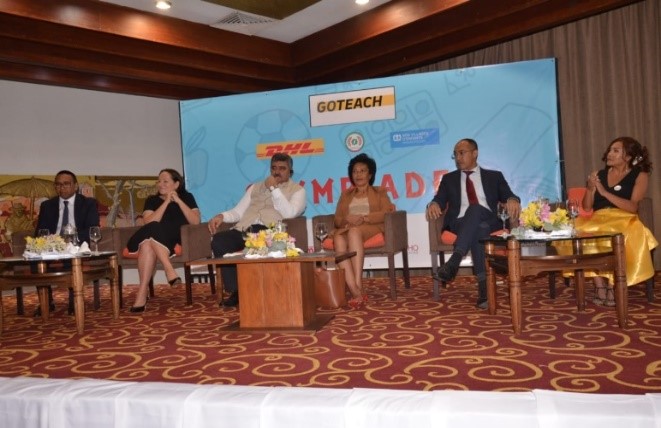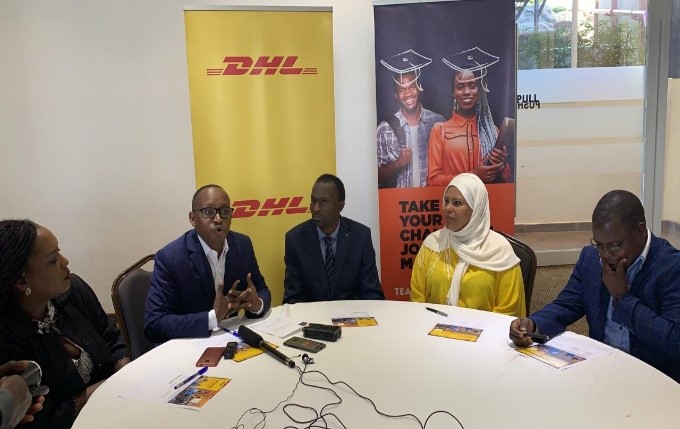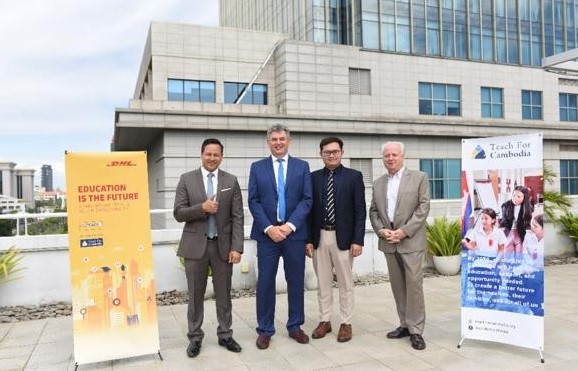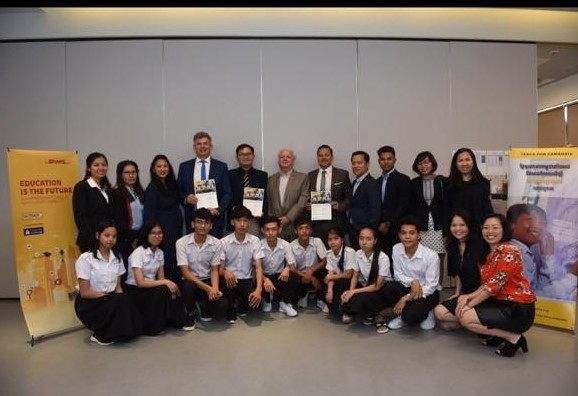9.7.1 Photographs as media materials:
When you read stories, you are also drawn to them by the images that are part of the article. Not any image can be used by the media. Why?
- Image is blur
- Spokespersons at a press conference are not looking into the camera and/or positioning of spokespersons in the image seem haphazard
- Photo does not convey the ceremonious nature of the event
- Photo is not self-explanatory of the celebration (e.g. branding or words on backdrop are blocked)
Examples of images that should not be used:

9.7.2 Getting the right shot at a media event:
- Brief your photographer in advance to stage the shots needed. Suggestions as follows:
- Gather all spokespersons together BEFORE the event starts for a posed shot complete with branding. Example below.
- Organize a group shot that includes DHL business heads partner representatives and youth (if in attendance). Example below.
- Be on standby to have the photo ready to share as soon as it is taken
- Email the chosen photo ASAP to your RO Comms colleague the moment the press conference end. (This is when the press release needs to be distributed.)
- Provide a caption for the photo. This can be names and titles of spokesperson from L-R or a description of the event if it is a group photo e.g. “DHL and XXX celebrate the launch of their new partnership along with students from XX school.”
Examples of images media-ready images:
9.7.3 Photographs from Volunteer Activities
No matter what you are communicating you need to ensure that your communications are going out with fantastic images. A picture tells a thousand words and images definitely bring GoTeach activities to life, be it for internal updates or external story-telling
Photography guidelines
Ensure you take photos that capture:
- volunteer activity in action
- interaction between DPDHL/DHL volunteers and beneficiaries
- group shots of volunteers and / or beneficiaries
- DPDHL/DHL senior management, as well as partners (if relevant)
- the DPDHL/DHL logo, standees, banners, event collateral in the background
IMPORTANT: Find out from your GoTeach partner if you are allowed to publish photographs of their youth in your external and internal communications (sometimes you will only be allowed to publish photos internally). Please also confirm if your partners have any guidelines for you to follow e.g. close-ups of youth’s faces may not be allowed. Others may allow any shots to be taken. Hence it is always key to check!
| Chapter lead | Jenny Yeo |
|---|


